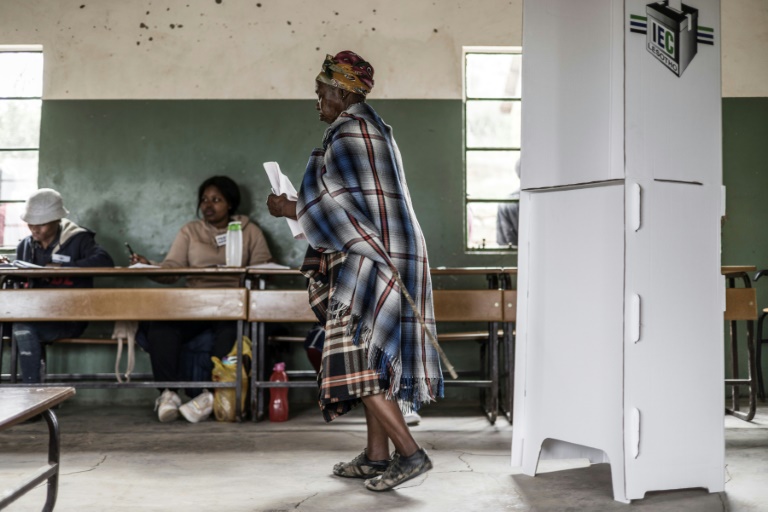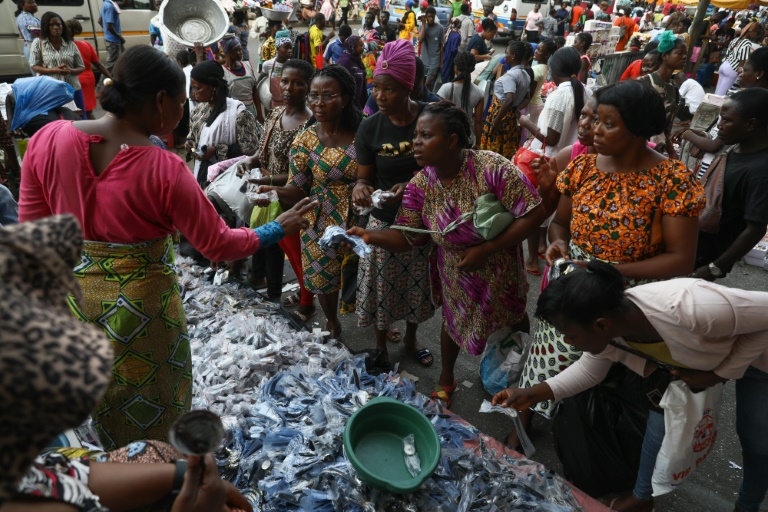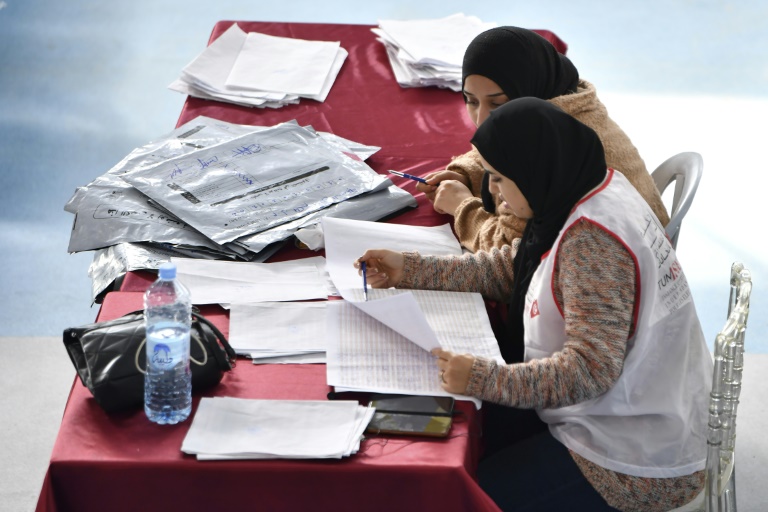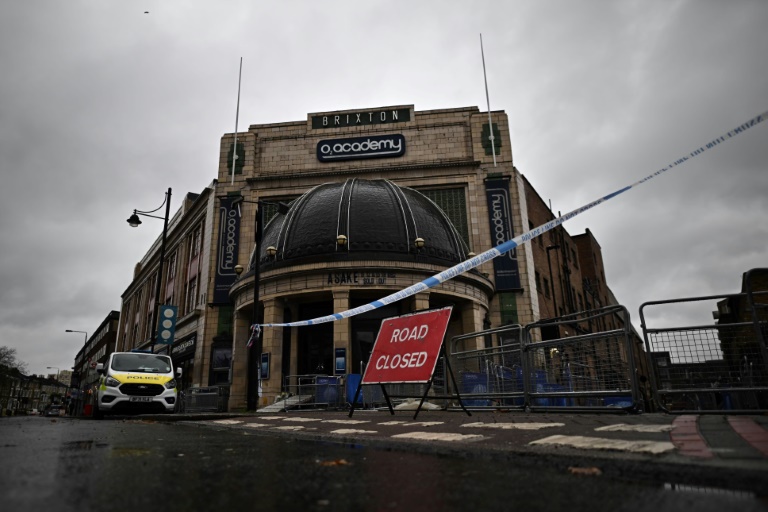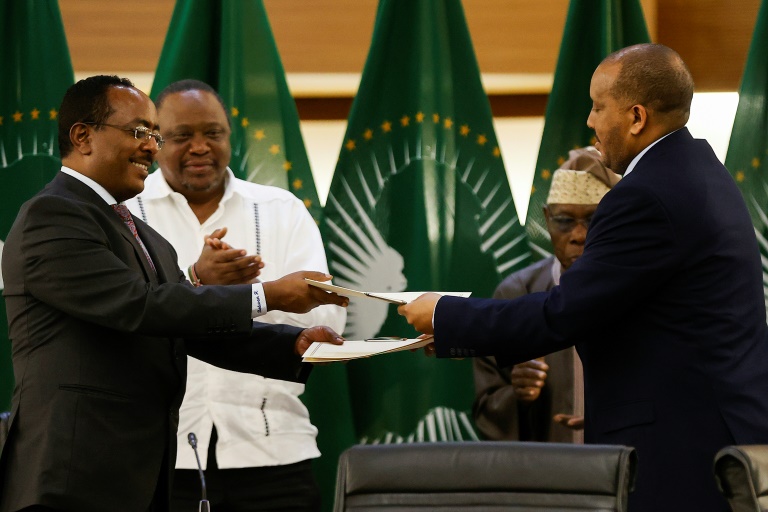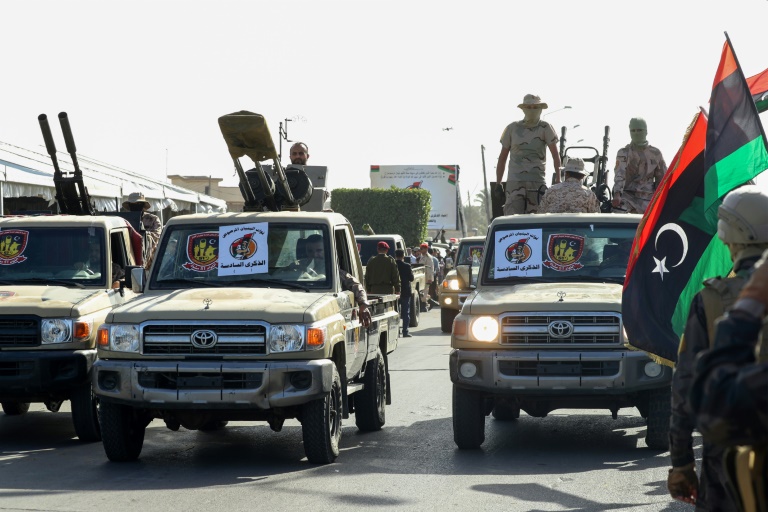A voter leaves the polling booth, holding her ballot, in the town of Koro-Koro
Voters in Lesotho were casting ballots in parliamentary elections on Friday, but observers doubted that the outcome would end long-running political gridlock.
The southern African kingdom has been governed for the past decade by frail and fractious coalitions, and no premier has served out a full five-year term.
“It is very likely that there will be a coalition again,” said Liesl Louw-Vaudran at South Africa’s Institute for Security Studies (ISS), in Pretoria.
Surrounded entirely by South Africa, Lesotho is a mountain nation of two million people nicknamed the “Kingdom in the Sky.”
It has been buffeted by coups and attempted coups since independence from Britain in 1966, and nearly a third of its population live on less than $1.90 a day.
In Koro-Koro, about an hour’s drive from the capital Maseru, men wrapped in traditional blankets started queueing outside a voting station from the early morning.
“I hope that my vote will count,” said Paul, 32, who said he had walked for kilometres (miles) to cast his ballot.
Like many, he used to work in South Africa, but the Covid-19 pandemic upended that and today he is unemployed.
Polling stations opened at 7:00 am (0500 GMT) and were due to close at 5:00 pm. About 1.5 million people are registered to vote.
In Maseru’s suburb of Matala, marquees on the grass served as polling stations.
Before opening shop, election officials showed the empty ballot boxes to those queueing outside, to allay fears of rigging. International observers watched.
“I have never voted, and I am not willing to vote,” Dineo Moketsie, a 32-year-old teacher told AFP earlier in the week, angry at politicians who he said had done nothing to better living conditions in the country.
“I just feel that it’s a waste of time”.
The outgoing government is led by the All Basotho Convention (ABC). But current Prime Minister Moeketsi Majoro is not seeking another term, after being ousted as party head earlier this year.
His predecessor Thomas Thabane was forced to step down in 2020 after being accused of ordering the murder of his estranged wife. Charges against him were dropped in July.
The ABC’s new leader, former health minister Nkaku Kabi, is squaring off against an array of contenders.
More than 50 parties are in the running.
– Millionaire challenger –
Kabi’s main challengers include Mathibeli Mokhothu, who heads the Democratic Congress — Lesotho’s second largest party — and Sam Matekane, a millionaire believed to be the country’s richest man who could be a dark horse, according to analysts.
His party, “Revolution for Prosperity”, dwarfs most of the others in terms of resources, said Rataibane Ramainoane, a political adviser to the government.
“Its presence is being felt across the country,” he said.
Still, no one is expected to win outright, darkening prospects of much-needed reform, said Seroala Tsoeu-Ntokoane, a political analyst at the National University of Lesotho.
“Coalitions are a source of instability because they’re formed with political parties with not much to hold them together, no mutual policy platform, no mutual respect,” she said.
The outgoing parliament failed to pass a law aimed at strengthening political stability, by banning lawmakers from switching party allegiance within the first three years of their tenure.
“We want infrastructures, roads and running businesses, it’s all about bringing back hope in the country,” said Mekhotak Setsebi, 30, a blanket tied around his shoulders.
He is the head of a small logistics company but business is bad, he said before casting his ballot in Matala.
The 120-seat parliament is chosen by a mixed electoral system — 80 lawmakers are voted in by constituents, while another 40 seats are distributed proportionally.
Results are expected next week.

